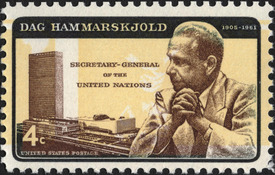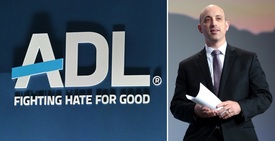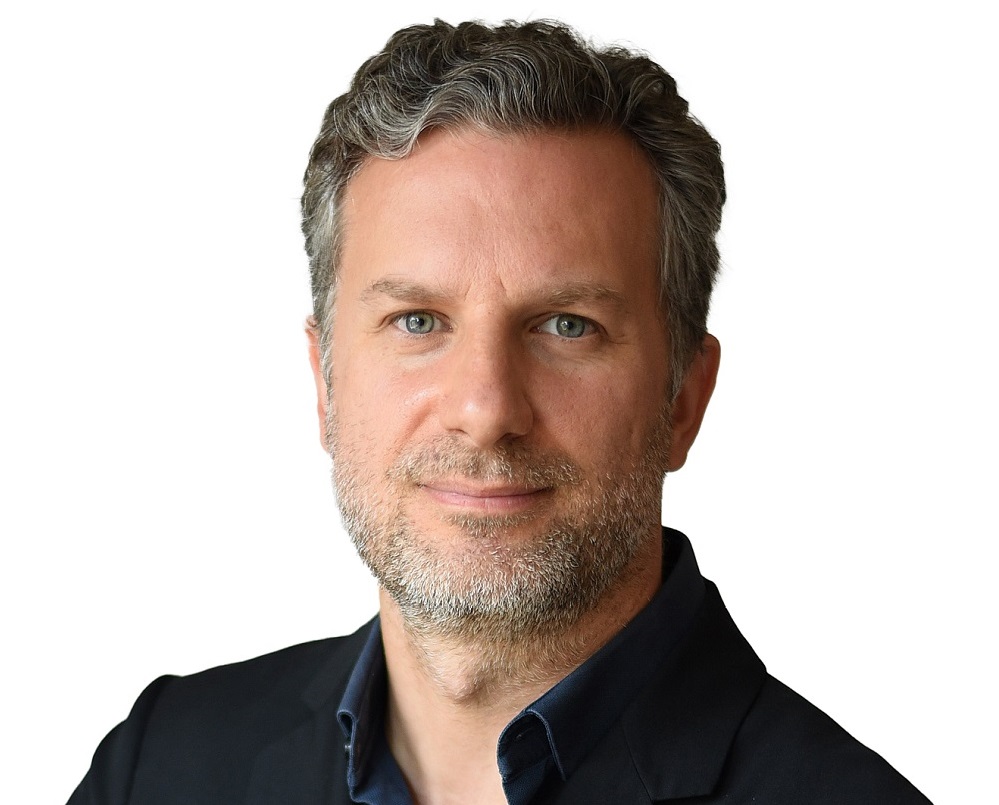Western ideals have collapsed
To the outside world, Astrid Lindgren's innocent world seems to belong to a bygone era in a Sweden now marked by violent gang crime and perverse LGBTQ lobby. Behind these developments lurks a society that is becoming increasingly totalitarian and dysfunctional, where independent journalists testify how freedom of the press and traditional democratic rules have been put out of play in the country.Who is a democrat?
According to the technically accepted definition, democracy is a principle of state organization. It is supposed to ensure that power emanates from the people and that government leaders act in the best interests of the nation as a whole. Through free speech and fair elections, the people should be given the opportunity to influence the development of the state and to remove those leaders who do not fulfill this most basic democratic responsibility. At least that is the theory.
In practice, of course, the actual nature of democracy differs from country to country, depending on historical, cultural and man other social factors. In Europe, the sharp contrasts in views of democracy have been reflected in exchanges between Hungary and Sweden, where Swedish politicians and media have repeatedly made sweeping accusations against Hungary of ‘lack of democracy’. This prompted, among other things, a request from the Hungarian side to the Swedish government to substantiate these accusations in the connection with Hungary’s process of approval of the Swedish application for NATO membership. However, the question of how the Swedish establishment’s view of democracy differs from that of Hungary still remains largely unanswered. Until the early 2000s, Sweden was a country admired internationally for its welfare state – the harmonious „people’s home” that spawned prominent diplomats such as the first-ever UN diplomat Folke Bernadotte, the UN Secretary-General Dag Hammarskjöld, and the UN weapons inspector Hans Blix.


Since then, however, the image of Sweden has shifted radically, as the country that perhaps more than any other has embraced the great post-war cultural revolution in the West. In the wake of decades of uncontrolled mass migration from the Third World, the safe cradle of the family-friendly folk home has been replaced by spectacular bombings by organized criminal gangs. The fall of competence and growing corruption in politics and the public sector have become increasingly apparent, whilst the drag queens of the LGBTQ lobby hold story hours for children in publicly funded libraries.
The journey of the independent newspaper Nya Dagbladet (eng. ”New Daily”), today widely regarded as one of the most relevant insurgents in the Swedish media landscape, provides a telling insight into the Swedish state of affairs. It was founded in 2012 on a completely non-profit basis, on the principle that it would remain independent and never cede control to outside investors or other interest groups. According to the newspaper’s founder, Markus Andersson, the journey of the project has been unique in the Swedish media landscape, which is otherwise almost entirely dominated by the two giant conglomerates Bonnier and Schibsted, with the sole exception of the closely aligned state broadcasters.
– Many people seem to have the impression that Sweden was a country of democratic pluralism, but the reality is that there were practically no nuanced, wide-ranging independent publications in the Swedish media landscape whatsoever. The gap that had to be filled was, and still is, absolutely enormous, says Andersson.
Nya Dagbladet’s news director, Isac Boman, who joined the project in 2016 and has been editor of the newspaper for more than eight years, agrees.
– Montesquieu did not include an independent mass media in his power-sharing model, but there is much to suggest that he probably should have. Meaningful democratic decision-making requires an informed population, but the masses cannot realistically be expected to scrutinize power on their own in practice. The media therefore have a crucial democratic function and a crucial democratic responsibility, he says.
In Sweden, Boman continues, the problem is more extensive than the media and journalists not fulfilling this function. Rather, he says, they systematically undermine it, in effect disinforming the population.
– Some still find it controversial to point this out, but anyone who has followed the media’s coverage of various issues over the past 20 years can see that this is clearly the case. More people have become aware of this in connection with the way the military escalation in Ukraine has been covered since it erupted in 2014, but you can go back to the Iraq war in 2003 and see that it was no different then either, says Boman.
The news director, who is an economist by education, points out that a major explanation for media corruption stems from a broader socio-economic development in the Western bloc, where big capital has increasingly managed to consolidate control over the mainstream media.
– In Sweden you can see that the large media groups are in league with financial institutions like JP Morgan, Goldman Sachs and fund giants like BlackRock. At the same time, many people still believe that these mass media act as a check on power for the people, when in fact they are a check on the people for the powers that be. The main democratic problem today is that the general public is not sufficiently aware of what the system we live in actually looks like.
To the extent that there is pluralism of opinion today, it is superficial, where even parties with formally different ideologies are in practice subordinated to deeper interests, says Boman.
– In Swedish newspapers and TV programs, you hear how the ‘red’ so called left-wing parties defend the interests of workers, the ‘blue’ so called right-wing parties the interests of entrepreneurs, the ‘green’ parties the interests of the environment, and so on. The squabbling between them over what are, in context, minor issues is what we call „democracy”. But the vital issues of profound importance for the future of the nation are not seriously raised in the debate – and if they are raised at all, they are systematically sabotaged by ridicule or stigmatization as „extremism” and other forms of pejoratives.
An important example of such fundamental taboos, he says, is the privileged societal position of big finance, including its influence on the mass media and thus on politics. The „rainbow coalition” of parties that dominates politics in Sweden, as Boman calls it, serves primarily as a protective shell that diverts attention from the oligarchy at the heart of the system.
– The central committee of the capitalist party, if you will, holds the real power in the West today. Its party conventions and working committees are known as the World Economic Forum, the Bilderberg Group, the Council on Foreign Relations, and so on. The LGBTQ lobby’s annual Pride parades are the system’s symbolic celebration for the masses, with more pseudo-religious overtones, where the public is given an approved forum to profess their faith in the rainbow flag and the system’s official values – „equality” and, ironically, „democracy”.
From an international perspective, Sweden is not unique, says Boman, although he acknowledges that the country’s development has indeed been more extreme than in many other parts of the West. It is in this context, says Boman, that Nya Dagbladet’s mission should be seen.
– Personally, I find it particularly interesting to work with an independent news medium in Sweden, precisely because the developments here have been so extreme in terms of the cultural revolution and its many various expressions. In the long run, I think it’s very helpful for journalists like us, as well as for the Swedish people, that the ”Swedish situation” has also been noticed internationally, even if it’s not something to be proud of at the moment.
Although there are many similarities to be found with other Western countries, Boman doesn’t think it’s a coincidence that Sweden has become particularly feverish in its liberal progressivism.
– Sweden is sometimes popularly referred to as „landet lagom” – „the land of lagom” after the unique Swedish word „lagom” which refers to something that is precisely balanced – not too much, not too little, but just right. The question is, however, whether Sweden is really so lagom. My impression is rather that Swedes seem to have a tendency to devote themselves to what they perceive as „the highest thing”. In the Viking Age, the Swedes were the last to abandon the old gods and become Christianized, but once Christianity was embraced, St. Bridget and the dreaded Caroleans, the Swedish soldiers who were known for their fierce Christian faith, came along. In modern times, the Swedish people became dedicated to building the social-democratic „folk home” and today I think we on a collective scale believe we are carrying out a cultural revolution to achieve a liberal utopia – to become the most modern country in the world.
– Another factor, I think, is that the Swedish collective self-image is also relatively more unprocessed than in many other nations – its „shadow” has grown. There are many who have pointed out, for example, that it has become taboo under the cultural revolution to fly the Swedish flag, but in reality I think it’s not just because of political correctness. Deep down every Swede sort of already knows that Sweden is the best, and they don’t even implicitly want to risk to brag about it by waving the flag, because in Swedish culture boasting is seen as something very negative. When the Swedish establishment points the finger at Hungary, I think it’s partly this unconscious „shadow” as Carl Jung would have said, that makes itself felt – that Sweden is somehow by definition superior – and its expression becomes unsympathetic when it lacks humility and an ability to self-reflect.
– Of course, there are many other factors to consider, such as the fact that Sweden experienced a strong economic boom in the 50s and 60s after World War II and has not experienced a major war on its own soil for more than 200 years. There is still a lot of pride that remains from that period and a lot of trust that people back then felt in major institutions, from government agencies to state media channels. Psychologically it is not surprising that many feel pain in realizing that the country has changed into something else. Instead of directing their grievances at those who are actually responsible for this, that is the establishment, they instead suppress such feelings and project them onto those who they perceive as threatening the status quo, such as independent journalists like us.

Boman also notes that going against the tide, as Nya Dagbladet has done in practice, has not been easy and has come at a high price.
– Going against the tide has never been an end in itself. Our mission is simply to perform the function that the media is supposed to perform and that Sweden so desperately needs. It is quite ironic that people like us, who try to get and give an objective picture of social issues such as migration policy and demography, often have been labeled as extremists, when in fact it is obvious that it is the state of affairs and the public debate that has been extreme.
In practice, Boman argues, there is no democratic dialogue worthy of the name, or even any sincere desire for open political debate in Sweden today.
– At least not in the sense of an open conversation based on the message of what is said. The public square in Sweden is more like a psychological war, where everything is about shooting down messengers who bring dissenting perspectives. At Nya Dagbladet we have covered many areas in a way that is certainly unique in the Nordic media landscape, and although we have earned the public’s respect over time, it has come at a high cost.
He adds a personal belief that journalists have a lot to gain by not seeing themselves as victims, but instead accepting that it is part of the job description to be able to endure periods of stigmatization that come with raising issues that are initially perceived as controversial.
– Police officers have to face violent criminals, paramedics have to be prepared to see people die. Journalists, for their part, must be prepared for attacks on their reputation and character. Those who stand firm can gain respect and authority over time, although that time can sometimes be long, especially when an issue is highly controversial, but in our experience it seems almost like a law of nature that this is how it works in the big picture, Boman continues.
He also points out that the main attacks are not coming from the people, but from deep state agencies and well-funded networks of lobbying organizations operating internationally.
– In the US, an organization like the ADL can be seen to act as a gatekeeper for this whole paradigm, trying to character assassinate and undermine all potential opposition. In Sweden, this equivalent role is taken by the ADL’s sister organization Expo, a left-wing extremist organization with roots in the pro-violence so-called autonomous environment, which has been the single actor that has most sabotaged, for example, the work of Nya Dagbladet. In practice, these are hired character assassins who are used as authorities on how our reporting and also we editors personally are portrayed in the major mainstream media and on other major platforms such as Wikipedia, to undermine our credibility and try to scare the public from reading our articles for themselves.

Nya Dagbladet is now entering its fourteenth year, and Boman notes that it was far from a given that the newspaper would survive the journey it has made so far. In December 2022, it was in the process of receiving funding for a newly established foundation to promote independent journalism in Sweden. A prominent American foundation had intended to donate a substantial sum to the cause, but the transfer was stopped under strange circumstances by the bank that was handling the media house’s accounts at the time – Länsförsäkringar Bank. Not only was the support sabotaged, but the newspaper’s bank account was closed – as well as the private accounts of the editorial staff. The bank referred to obvious false pretexts and improprieties in connection with an obviously politically motivated assault.
– All documents were ready and checked and approved by the bank. However, the behavior of the bank staff changed overnight and it is quite obvious that a third party put them under pressure in some way. They were absolutely unreasonable to deal with, says Boman, who highlights that several of the transactions referred to by the bank as in some way ”suspicious” were transparent transactions between accounts within the same bank.
– They accused us vaguely of ‘organized money laundering’ and ‘possibly financing terrorism’ – while referring to transactions we had in fact largely done between our own bank accounts and the media company’s accounts – that is, within the same bank. It’s very hard to escape a sense of Kafka in this story, but this kind of behavior has become symptomatic of the Swedish system today, he says.
The newspaper was on the verge of bankruptcy, but managed to survive, not least thanks to the support of readers who rallied behind the editorial team, and today the media house is pursuing several legal cases against the bank. The same company – Länsförsäkringar – had also privately insured the editors, and has also denied the right to use their legal insurance during the lawsuits.
– In practice, of course, this means a great personal risk in what is obviously a David vs. Goliath battle when you challenge a multi-billion dollar company in this way. At the same time, we have a strong legal base and a skilled lawyer who is helping us because he believes, as we do, that it is fundamentally important not to let the banks get away with this kind of behavior. This is not so much about our own vindication as it is about unique legal cases that are actually unprecedented in Swedish legal history and that will in practice determine whether we have a functioning democracy with freedom of the press in Sweden – or whether we have a banking dictatorship where the banks themselves can act as courts at their own discretion and do exactly what they want, Isac Boman continues.

Even in cases where the newspaper’s editorial staff has been subjected to sabotage and attacks, he points out that, ironically, this has served a public education purpose by making more people aware of the issues they raise and how different parts of the system actually work. Kafkaesque processes are not only to be found in the banks, but also in the Swedish state apparatus, as the case of state media subsidies has shown. In 2020, when Nya Dagbladet met the official criteria to qualify for state press subsidies, the newspaper’s application was rejected. The formal political committee responsible for the decision could not point to any shortcomings in the application, but instead pointed to the fact that the newspaper had some volunteer contributors. This, they explained, meant that they considered that the newspaper „did not need any financial support”. At the same time, the maximal subsidies were distributed among a long list of different newspaper titles of the large Bonnier and Schibsted media groups.
https://nyadagbladet.se/inrikes/nya-dagbladet-nekas-statligt-mediestod-arbetar-for-mycket-ideellt/
– It is clear that not everyone is equal before the law and that democratic rules are no longer applied in Sweden, and it is good that the public can see this clearly by following our stories. The first step to getting well is to admit that you are sick, and I think the magazine has really helped with that in terms of the state of democracy in Sweden in general, Boman continues.
The state of Sweden beyond the democratic deficit is of course serious, he says, pointing out that based on current demographic trends, the ethnic Swedish population is probably only a few generations away from becoming a diaspora in their own country.
– Democracy is supposed to be a system based on the people. It is a logical consequence that population replacement means that democracy ceases to exist. In a country where the population is in danger of becoming a minority, and thus losing control over its own future, the principle of democracy can no longer prevail. It is, of course, a bizarre situation that today it is not the people who effectively replace their representatives, but these supposed representatives who is replacing the people.
At the same time, he points out that there are also signs that younger Swedes, who have experienced the consequences of dysfunctional policies and the cultural revolution to a greater extent than older generations, have become increasingly sober about social developments. – It may seem to some that the Swedes no longer have a future as a nation and a people, but the fact is, as Gandalf tells Frodo, that even the wise cannot always see all the endings. In 1985, few could believe that the Soviet Union would vanish as early as 1991. In 2019, few really believed that Nayib Bukele’s government would be able to eradicate the grip of gang crime on El Salvador.

Despite the almost dystopian current state of Sweden, Isac Boman and Markus Andersson are optimistic about the future, insisting that they see unique opportunities to build something completely new among all the people who are now waking up.
– In fact, the turnaround may be closer than many think. We only have to look at history to see that Swedes have risen before. One way or another, a new civilization will rise from the ruins of the increasingly decaying West, that’s my absolute conviction, Andersson concludes.
.


